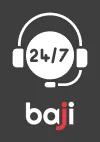UNHCR and its partners are following up 5,000 child protection cases. After the COVID-19 response started, the number of cases increased significantly. This seriously shows the impact and consequences of the pandemic on the refugee community. Children are vulnerable to increased violence, work pressure, abuse and neglect. These concerns were raised through consultations with teenagers, children, and parents/caregivers. The closure of learning centers, child-friendly centers, and other children’s activities places children further facing protection risks, leading to increased behavioral challenges and adopting negative coping mechanisms. The Mental Health and Psychosocial Support Working Group (co-chaired by UNHCR) is recognizing the severe challenges faced by children and is increasing its psychological first aid work for children.
In camps, sexual and gender-based violence continue to exist, especially intimate partner violence. The overall situation is seriously affecting the health and well-being of women and girls, including the worrying rise of girls talking about suicide. Child marriage remains a concern, affecting adolescent boys and girls between the ages of 14 and 17. The number of teenage pregnancy is also increasing. UNHCR is working with communities, especially boys and boys, to make people more aware of the harm caused by child marriage and gender inequality. In discussions with the RRRC, UNHCR also emphasized that despite COVID-19, it is still necessary to continue to obtain notarized marriage and divorce certificates so that the camp officials can continue to play an important role in intervening and preventing child marriages. All facilities operated by UNHCR’s partners in gender-based violence and violence in the 20 camps, including case management services, continue to be prioritized.
As mentioned above, some monks are increasingly playing a negative role in the community, especially by participating in the mediation of SGBV cases. They charge fees and hinder access to legal aid, and in some cases threaten humanitarian workers and volunteers trying to provide legal aid. UNHCR continues to advocate for representative community structures in all camps, as has been successfully conducted in certain camps. The agency has made this proposal in the past, requiring the community to elect representatives in a transparent manner. These agencies are bound by their terms of reference and codes of conduct.
During the pandemic, some refugees in Cox’s Bazar also expressed concern about the possible transfer of resettlement to Bhasan Char. They worry about separation from family members and social networks, as well as uncertainty about the prospect of migrating to a new living environment where their knowledge of services and conditions is limited.
The UNHCR received reports that the Bangladeshi authorities have begun consultations with refugees in the refugee camps on resettlement to Bhasan Char, and plans to conduct an initial “tour” visit to the island. They include the mahjis and family members of the refugees currently on Bhasan Char, who initially set off from the Bazar refugee camp in Cox. UNHCR encourages “walk and see” visits to introduce Bhasan Char to refugees, but the agency has not participated in discussions with refugees or planned visits.
In May 2020, the government requested that the United Nations had agreed to conduct protection and humanitarian visits to Bhasan Char, meet with 306 Rohingya refugees who were transferred to the island, and assess their current humanitarian situation and specific needs. The United Nations shared its terms of reference with the government and established an inter-agency group of protection experts. Three months have passed since the refugees were transferred to Bhasan Char, and the United Nations now urgently needs to reach them.





